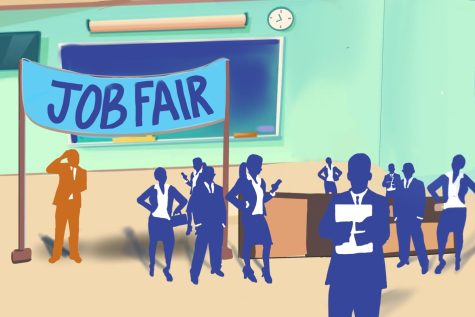Texas teachers need more support
October 18, 2022
Before the 2021-22 school year, the Texas Legislature passed a law restricting the size of kindergarten through fourth grade classrooms to 22 students, unless the district sends a request to the Texas Education Agency. This law was instituted to allow teachers to better address the needs of students. However, this implementation may have come at the wrong time with Texas’ increasing teacher shortage.
The Texas Education Agency has endured a teacher shortage for years. With the impacts of COVID-19, school shootings, new laws from the state government and Texas teachers being historically underpaid compared to those in other states, more teachers are leaving education and not looking back. In February, two-thirds of teachers surveyed said they have been considering quitting their jobs.
Texas teachers have experienced one crisis after another, from adjusting to remote learning during the pandemic to the continued concerns over school safety. Additionally, teachers have had enough of the lack of support from the government. Texas teachers deserve more support from the Texas Education Agency.
Central Hicks, assistant principal at Liberty Hill Middle School in Killeen ISD, taught for over 20 years before switching to administrative work two years ago. Hicks believes that, with recent laws and limitations on what teachers can discuss, such as with critical race theory, teachers are now in a strange position regarding what they can and can’t say.
“Teachers have to decide what their principals’ take on this is. ‘What does that look like, and how am I going to be supported if I do say something?’” Hicks said. “Teachers are realizing their livelihood can be taken from them, simply because they’re approaching a subject people don’t feel like they should be able to.”
Hicks has seen the effects of the teacher shortage firsthand. To address the lack of teachers, school districts are forced to employ long-term substitutes in order to adhere to Texas Education Agency requirements. In Hick’s experience, some substitutes are tasked with preparing students for Texas standardized tests, such as the STAAR test, even if they are not prepared or educated in the subject.
The new generation of educators will also face the realities of the Texas education system. Many education majors were drawn to the field by the great teachers they had when they were younger. However, concerns such as low wages and burnout have affected the appeal of teaching.
Applied learning and development sophomores Regina Kim and Elena Nguyen are members of the Teachers of Tomorrow officer board and questioned pursuing teaching at the beginning of the year. They are concerned about the lack of government aid to teachers.
“I feel like the government doesn’t really support the education system,” Kim said. “I think that a lack of support from the government is really detrimental to us.”
The College of Education does not sugarcoat the education system for students. However, this turns away students who were previously interested in teaching.
“I feel like learning (the negatives of being a teacher) has pushed the people (away) who applied to education, just to apply to education, thinking it’s an easy job. I think it definitely pushes people away,” Nguyen said.
Kim shares this same sentiment.
“My courses here at UT really opened my eyes,” Kim said. “The reality teachers have to face … it’s not all decorating classrooms and having fun like 12-year-olds, but talking about all the things we don’t want to talk about.”
This issue cannot be fixed overnight, but it’s extremely important to recognize that the current educational system is severely flawed and needs to be addressed. The state could begin by limiting laws and policies that restrict teachers and affect their livelihood. It’s time for the state of Texas to start listening to teachers and taking action before teachers become even more scarce.
DuBois is a public relations and sociology sophomore from Killeen, Texas.











